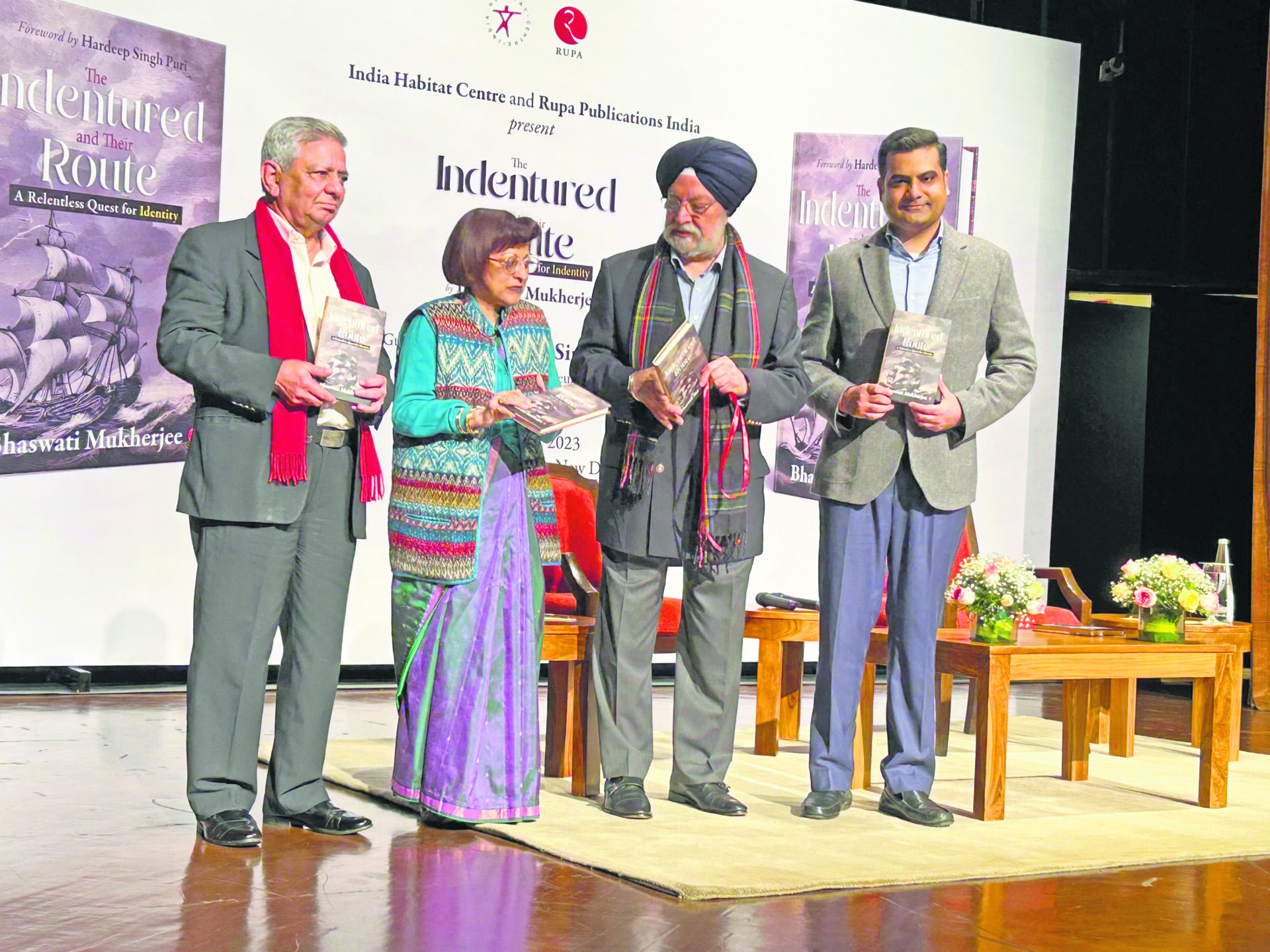Sharing the relentless quest for identity by the current generation of the indentured Indian community spread across different countries is very important at a time when they are assuming top positions in those countries yet continue to feel linked with the country of their origin, said Minister of Petroleum and Natural Gas Hardeep Singh Puri.
The minister was speaking at the of launching of Ambassador Bhaswati Mukherjee’s new book “The Indentured and Their Route – A Relentless Quest for Identity” here.
Praising the book for capturing the essence of the quest for identity by the indentured, Puris said, “This is a very important book which deserves to be a part of the a larger project that can go into the granular understanding of these communities’ identities – there are similarities and dissimilarities.”
Puri complemented Ambassador Bhaswati for her courage, ideological conviction and described the book as a work of academic rigour combined with analysis.
He said the book comes at a time when Indian communities across the globe, including Fiji, Mauritius and Guyana, are “reimagining their own identities and I think the umbilical link with the country of origin or the motherland and I think that is a story”.
Puri recalled Ambassador Bhaswati’s earlier days as a student and a teacher in Delhi University and her interest in history and added that much of the literature about the indentured has been around but her book puts the story in good perspective.
Ambassador Bhaswati called the book, her third, a work of passion and said she wanted to write about the book since 2007 while she visited the Aapravasi Ghat in Mauritius as part of an initiative of the UNESCO World Heritage Committee.
The author said that in her book she has also explained the dialectical relationship between slavery and indenture as both are the two different sides of the same coin.
During a conversation on the book with Ambassador Rajiv Dogra, the writer said after writing the book she was now tempted to write a full book on indenture women who were the worst victims. “The women kept the indentured families together, preserved their culture and religion,” she said.
Asked if she felt low while writing about horrific tales, Ambassador Bhaswati said on the contrary she felt happy on completing her work. “I was happy that I had educated people about our own past.”
“I felt it was my duty to do so. India’s lost children deserved to be remembered, mourned and honoured for what they did to preserve their cultural identity,” she said, referring to the 1.5 million impoverished Indian farmers and their families who were taken by colonisers to far off lands by taking their thumb impressions on indenture documents.

